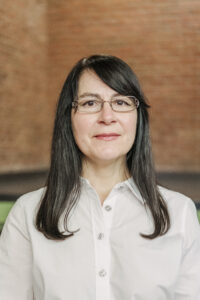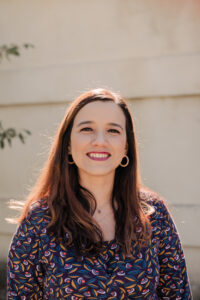 John Stolle-McAllister, Professor and Associate Dean
John Stolle-McAllister, Professor and Associate Dean
I research the cultural strategies and origins of social movements in Latin America. My most recent work examines some of the ways in which Kichwa Communities in and around the highland city of Otavalo have shaped and adapted to political and cultural change in this century. My theoretical focus is on critical interculturality, which situates cultural differences within hierarchies of power, as a means to work toward decolonization. Moving forward, I am interested in asking how intercultural theory and experiences inform responses by environmentalists to our global climate crisis.
 Steven Young, Associate Professor, Department of Modern Languages, Linguistics and Intercultural Communication
Steven Young, Associate Professor, Department of Modern Languages, Linguistics and Intercultural Communication
Dr. Young’s research focuses on the historical relationship between the Baltic and Slavic language families, as closely-related branches of Indo-European, in particular the origin and development of the complex accentual systems of these languages, the structural area which best demonstrates an original Balto-Slavic unity. In addition, he works on aspects of the phonological systems of both Russian and Lithuanian, his two major research languages. He has also done academic translation and editing work involving Russian, Lithuanian, and Polish.
 Kyung-Eun Yoon, Assistant Professor and Coordinator of Korean, Department of Modern Languages, Linguistics and Intercultural Communication; Affiliate Faculty of the Asian Studies Program; Affiliate Faculty of Language, Literacy, and Culture Doctoral Program. Dr. Yoon’s research interests are conversation analysis, discourse analysis, and second/foreign language teaching, related to the Korean language and culture. She analyzes different types of discourse to examine the interfaces among language, actions and socio-cultural values and identities in various settings. Her recent book examines the complaining activity in conversation and online interaction in Korean, regarding linguistic characteristics for complaining, organizational features of the complaining activity including the responses, and socio-cultural norms and identities constructed in the course of the complaining activity.
Kyung-Eun Yoon, Assistant Professor and Coordinator of Korean, Department of Modern Languages, Linguistics and Intercultural Communication; Affiliate Faculty of the Asian Studies Program; Affiliate Faculty of Language, Literacy, and Culture Doctoral Program. Dr. Yoon’s research interests are conversation analysis, discourse analysis, and second/foreign language teaching, related to the Korean language and culture. She analyzes different types of discourse to examine the interfaces among language, actions and socio-cultural values and identities in various settings. Her recent book examines the complaining activity in conversation and online interaction in Korean, regarding linguistic characteristics for complaining, organizational features of the complaining activity including the responses, and socio-cultural norms and identities constructed in the course of the complaining activity.
 Vira Zhdanovych earned her MFA from Kyiv National I. K. Karpenko-Kary University of Theatre and Cinema in 1988. She earned an MA from the Kyiv Higher Banking School, International Center of Marketing and Business, Finances and Credit in 1997. Ms. Zhdanovych joined UMBC in 2007 in the Russian Area and has taught Russian from the introductory through the graduate level, and topical seminars, including Political Russian, Russian Through Song, Russian Cinema, and Russian for Security and Defense. Ms. Zhdanovych is also interested in cross-cultural and interdisciplinary studies pertaining to Russia and Ukraine.
Vira Zhdanovych earned her MFA from Kyiv National I. K. Karpenko-Kary University of Theatre and Cinema in 1988. She earned an MA from the Kyiv Higher Banking School, International Center of Marketing and Business, Finances and Credit in 1997. Ms. Zhdanovych joined UMBC in 2007 in the Russian Area and has taught Russian from the introductory through the graduate level, and topical seminars, including Political Russian, Russian Through Song, Russian Cinema, and Russian for Security and Defense. Ms. Zhdanovych is also interested in cross-cultural and interdisciplinary studies pertaining to Russia and Ukraine.






